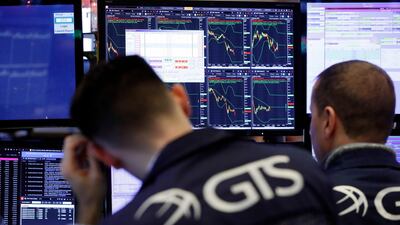Markets have been mixed through the first month of 2019 as global themes continued to mature.
January has been dominated by the Brexit proceedings following a couple of parliamentary votes and prime minster Theresa May surviving a vote of no-confidence. This saw sterling surge to 11-week highs against the greenback. Pound pricing has been curious to say the least, as it has failed to be deterred amid the various worst-case scenarios popularly publicised over the course of the past month.
Yesterday’s UK parliament votes are yet another symbol of the process of debate which will only continue to extend, rather than reduce the uncertainty for pound crosses. Following the currency's recent surge, it would prove tactless to build a view on sterling assets unless, and until, we have a clear path forward on the next steps as determined by Mrs May.
Another theme we are watching is the ongoing US-China trade war. President Xi’s top economic aide will be in Washington from today for two days of meetings with Treasury Secretary Steve Mnuchin and US trade representatives in an effort to further negotiate trade terms.
This is on the back of news earlier this week that US prosecutors filed criminal charges against Chinese tech giant Huawei Technologies, alleging it stole trade secrets from American rivals. The meetings fall at a rather crucial time in the lead up to the March 1 deadline, which would see import tariffs on Chinese goods increased from 10 per cent to 25 per cent. Investor sentiment will continue to remain sensitive to this theme, and will reflect in equity prices going forward.
US earnings season is well under way and has been mixed to say the least. The global slowdown is having an effect on US corporate earnings and it will be interesting to see how this theme plays into the rest of the announcements through the end of January. At the time of writing, Apple was yet to announce, with Facebook and Alibaba announcing later today followed by other tech leaders later this week - Amazon and Samsung.
Surrounding US earnings season are a couple of key US data points this week: US GDP due out later today is expected at 2.6 per cent for the fourth quarter of 2018 compared to 3.4 per cent previously.
Also coming out today is the Federal Open Market Committee rate decision, with no changes in interest rates expected. These releases will be preceded by the January US nonfarm payrolls data due out on Friday. On the back of a stellar December print – in which more than 300,000 new jobs were created and wage growth held above 3 per cent for the third consecutive month – we can expect a slowdown in the numbers for January.
The figures are expected to show 167,000 new jobs added this month, with wage growth expected to slow to 0.3 per cent month-on-month. We had noted last time that US dollar pricing will be less inspired by improving US numbers as the Fed rate hiking cycle seems to have normalised market expectations. Unless these prints spring a major surprise, we can expect the US Dollar Index to continue consolidating above 95 in the weeks ahead.
And finally, crude prices have rebounded in January, paring the entire downside move of December. Dubai Gold & Commodities Exchange West Texas Intermediary contract was up more than 14 per cent on the month. Uncertainty from Venezuela has recently captured the imagination of crude bulls and an announcement that Saudi Arabia expects to reduce oil output well below the production limit over the next six month should keep crude long positions interested in the weeks ahead.
Gaurav Kashyap is a market strategist at Equiti Global Markets. The views and opinions expressed in this article are those of the author and do not reflect the views of Equiti


